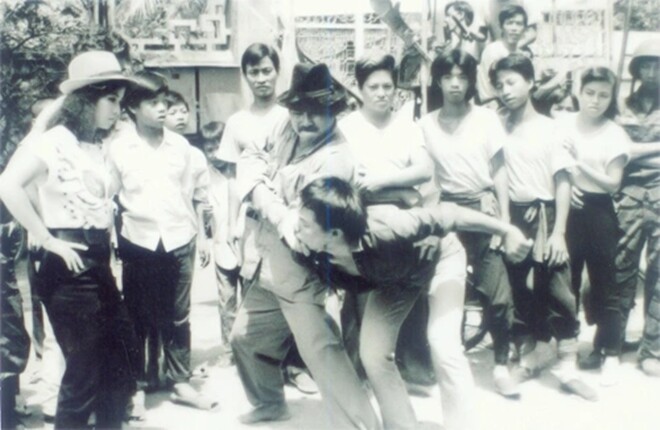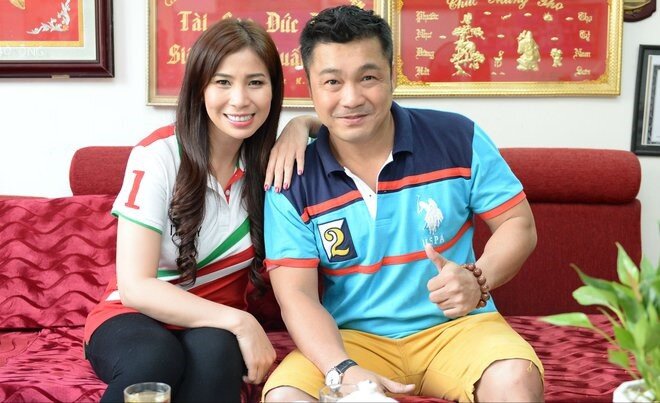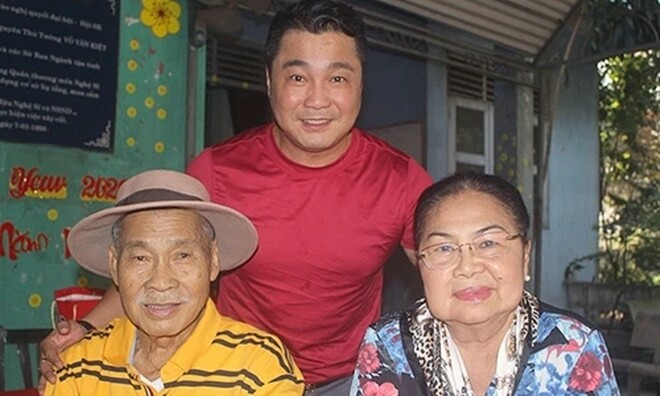The King of Martial Arts Films, Who Once Challenged Bruce Lee
People’s Artist Ly Huynh, born in 1942 as Ly Kim Tuyen in Binh Minh, Vinh Long, is a descendant of a Chinese family with a martial arts tradition. He studied Shaolin from a young age and then took up boxing with master Huynh Tien. Saigon’s martial arts community considered him part of the “Nam Ky Tu Tu” – the four brightest martial arts stars in the South at the time. He had 12 bouts between 1965 and 1974, winning 8, losing 3, and drawing 1. Notably, his signature move was the “Lien Hoan Bat Cuoc” – a series of eight jumping kicks.
In late 1972, while filming in Hong Kong with director and martial artist Han Anh Kiet (martial arts director in Bruce Lee’s film “Enter the Dragon”), he performed his “Lien Hoan Bat Cuoc” technique. Han Anh Kiet was astonished and asked: “Would you dare to fight Bruce Lee?” Ly Huynh replied: “I’m ready.”

People’s Artist Ly Huynh was once Saigon’s most famous martial artist.
This reply made headlines in both Saigon and Hong Kong newspapers, creating a wave of interest. However, the fight never happened as Bruce Lee passed away in July 1973, leaving Ly Huynh with an interesting yet regretful memory of the challenge.
Aside from martial arts, Ly Huynh’s film career flourished from the late 1970s to the early 1990s, with nearly 60 films to his name, including notable works such as “Co Nhip,” “Vung Gio Xoay,” and “Tay Son Hao Kiet.” He won the Golden Lotus award for his role as Hai Lua in “Vung Gio Xoay” and the Silver Lotus award for his role as Colonel Hoang in “Co Nhip.” His direction and acting paved the way for historical martial arts films in Vietnam.
In 1993, he was honored with the title of Meritorious Artist, and in 2012, he became a People’s Artist. Both he and his wife were pillars in their family’s martial arts and artistic endeavors, preserving their heritage and upbringing, and guiding their children to success.
Ly Huynh’s legacy continues through his children, who are well-known in the film and martial arts industries, including director Ly Son, and actors Ly Hung, Ly Hong, and Ly Huong.
A Devoted Wife and Talented Children
The most important person in People’s Artist Ly Huynh’s life was his devoted wife, Doan Thi Nguyen, affectionately known as “Lan” or “Co Lan.” Their love story began when Ly Huynh was 18 years old, as she was his junior martial arts student. During a competition in 1965, when he was unfairly treated, she rushed to the stage to defend him, leaving him deeply touched. He proposed to her on the spot.
After their marriage, she dedicated herself to supporting her husband and their family, managing the finances for his film endeavors. She shared: “His film salary was barely enough for his coffee, but seeing him being able to contribute made me take on the financial burden. The most challenging time was when I gave birth to our youngest daughter, Ly Huong, in 1978. It was a tough time during the subsidy period. I raised pigs and sold pens in Cho Binh Tay market to make ends meet, allowing him to focus on his films.”

Mrs. Doan Thi Nguyen with her son, Ly Hung. She has been her husband’s devoted partner since they were 18.
The couple had six children – two sons and four daughters. Three of them followed in their father’s artistic footsteps: Ly Hung, Ly Huong, and director/producer Ly Son. Ly Hung (born in 1969), inheriting his father’s martial arts skills and passion for the arts, portrayed historical figures such as Quang Trung in “Tay Son Hao Kiet,” directed by his father. Ly Huong (born in 1977), Vietnam’s first female action star, starred in many action films, including “Phi Vu Phuong Hoang,” “Hong Hai Tac,” and “Ke Hoach 99.” Both siblings were taught martial arts and raised with strict discipline by their parents. Their mother, Mrs. Lan, supported the family by running businesses and managing finances for their artistic pursuits.
Ly Hung currently leads a single life, living with his mother. Their family is known for their charitable activities, and they were collectively awarded the Third Class Labor Medal. Ly Huong experienced a marriage in the US, which later ended, and she faced legal troubles, being separated from her daughter for over 12 years. In 2005, she reunited with her daughter and rebuilt her life, continuing her artistic and charitable work.
Ly Hung emotionally recalled his father’s love for their family before his passing: “Before he left us, my father was very lucid. He gave each of us instructions and kissed us goodbye. He told me to take good care of my mother as tears flowed. Having lived with my parents for many years, his departure left me feeling lost, as if a part of my soul was taken away.”

Ly Hung felt a deep sense of loss after his father’s passing.


































